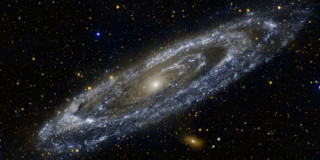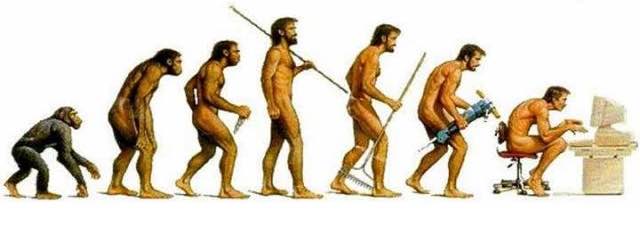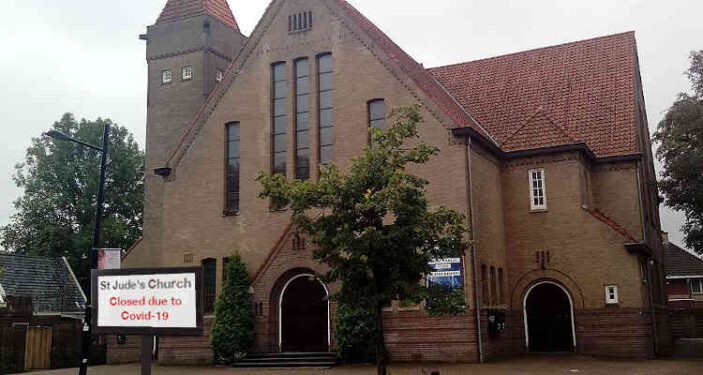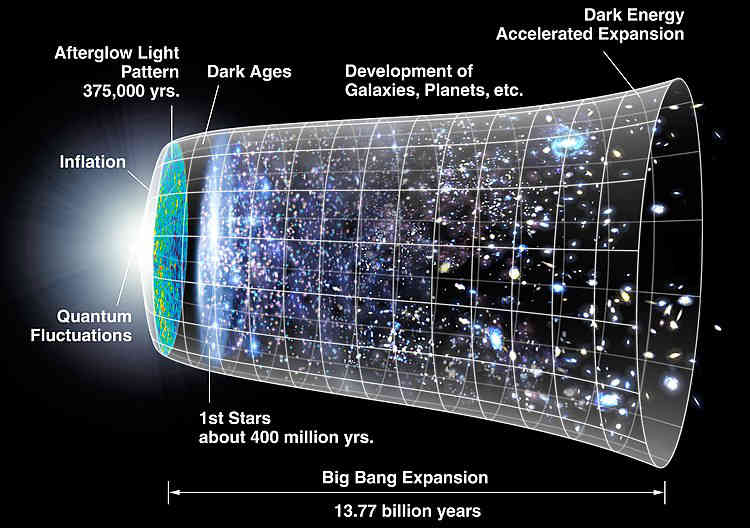Human knowledge has expanded enormously in the past century. (Not sure that wisdom has kept pace!) All aspects of life have been affected, and in many cases improved.
This knowledge explosion has had an impact on religious belief, including Christian belief. Some people see science as overthrowing religion. But more and more, Christians are finding insights in physics, history, archaeology and psychology that are giving them new understandings of their faith.
So what can we learn from science and history?
New ideas about the universe
It used to be that Christians (and Jews, and others) believed God created our world and the entire universe very quickly. For example, in Genesis God created the earth on the first day, then sorted it out on the next five. The sun and moon appeared on day 4, and apparently circled the earth. If we accept the traditional chronology, the earth is only 6 to 10 thousand years old.
But lots of scientific evidence eventually showed this wasn’t literally correct. The universe is much older, the earth circles the sun, there are many many other solar systems, suns and galaxies. And so on.
Eventually the big bang picture became accepted. An enormous surge of energy almost 14 billion years ago created the universe of space and time, which has been expanding ever since.

At first the temperature was incredibly hot and all matter was in small fundamental particles. But as time went on and the universe expanded, the temperature dropped and matter began to “clump” into larger particles, and then into dust clouds, stars and planets.
Our earth was formed about 4.5 billion years ago, so it is a lot older than we used to think, but has only been around for about a third of the time the universe has existed.
So the universe has been in a constant state of change and “growth”. Even now, 14 billion years after it began, stars are dying, new stars are forming, galaxies are colliding and it is hard to predict what will happen in the long run.
As a Christan, I believe God created, and I see nothing in all this that challenges that belief – in fact to me it reinforces it. But I have to believe he created it via the big bang (I can picture God saying “let there be light” and the big bang happened), and he was willing to see more than 9 billion years pass before the earth would form, and wait almost 14 billion years before human life appeared. It is almost as if the universe has a life of its own.
The evolution of life
The Genesis account pictures the first humans being created, apparently instantly, out of the dust on the sixth day of creation, with all the animals on land, sea and air on the fifth and sixth days. Human life is very different from animal life – only humans are made in God’s image.
But the biological sciences have given us a different and more challenging picture. The first life forms were microscopic organisms (microbes), about 3.7 billion years ago. Through the process of natural selection (where successful forms of life survive and breed more than others) life became more complex.
Very simple animals (probably sponges) appeared about 800 million years ago, the first mammals about 200 million years ago, the first apes about 25 million years ago, and the first humans about 2 million years ago. The first modern humans (homo sapiens) evolved from their early hominid predecessors about 250,000 years ago.
This evolutionary process blurs the distinction between humans and animals, something many Christians find hard to accept. But I believe the science is basically correct (though doubtless there will be some new insights in the future) – DNA in particular seems to settle the question.

So apparently God chose to create the human race “in his image” via evolution. He didn’t seem to be in a hurry. And he seemed to be OK about a process that is far from perfect, with evolutionary dead ends, and with predation.
Evolution has given earth’s life forms, especially humans, freedom to evolve without God necessarily controlling the process. (I believe he was clever enough to set up the big bang so humans would evolve.)
The changing church
The church is supposed to be God’s agent in the world. It too has changed constantly, but not always “onwards and upwards” in the same way as the universe and life have evolved. Rather, its progress seems to be more sporadic, with as many downs as ups.
But to its credit, it has generally adapted to the local environment, even if often far too slowly. It is as if there is a natural selection process operating here too. Churches which adapt tend to survive and thrive; churches which refuse to adapt tend to fossilise and diminish.

Worldwide, the church is very flawed and inconsistent. It has supported morally corrupt governments but also stood heroically against corrupt regimes. It has abused children and women but also helped so many out of poverty and danger. It has supported slavery but also fought against slavery. It has hurt and helped.
I think if I were God, I wouldn’t want to trust my reputation on earth to such a flawed representative. And I’m sure he’s not happy with everything that is done in and by the church. But somehow he allows it to have it’s own autonomy, to a degree at least.
Shock! Horror! God seems to be able and willing to act through and be represented by an imperfect organisation!
The Bible
There are two quite different views out there about the Bible.
Conservative Christians have developed a doctrine, almost a dogma, that the Bible is literally God’s words written by humans, and so it is close to perfect in all that it teaches. Apparent anomalies, inconsistencies and mistakes mustn’t actually be faults. God’s ways are always perfect. It isn’t a view that is explicitly taught in the Bible itself but is based on interpretation.
The second view is that of scholars – historians, theologians, archaeologists, anthropologists and literary experts. They say the Bible is a product of its times and reflects priestly, royal and prophetic perspectives, and they sometimes say many different things. They say there is significant development in the way the Bible portrays God (from a violent tribal God to the loving God of Jesus) and its teachings on ethics.
How do we choose which of these views is correct?

Well the hard evidence from literary and historical studies and from archaeology points to the second view. Which makes many Christians feel deeply uncomfortable. They feel it is somehow demeaning to God and truth.
But if God used gradual and in a sense “hands off” processes to create the universe, produce human life and spread his message via the church, we shouldn’t be surprised that he might do the same with the Bible.
It would still be the scriptures, it would still be a key way that God reveals truth to us, but we would understand its nature differently and interpret it differently.
CS Lewis said this understanding is “the greatest revelation of God’s true nature”.
What if dogma about the Bible is keeping many Christians from reading the Bible rightly and from understanding God better?
Main graphic: Big bang timeline (Wikipedia). Galaxy graphic from Wikipedia. Evolution graphic by The PIX-JOCKEY on Flickr. Church photo by Wikimedia Commons. Bible-reading photo by Ben White on Unsplash.





There may be some problems with your description ” (I believe he was clever enough to set up the big bang so humans would evolve.)”
If we ever confirm the existence of intelligent aliens, as most scientists seem to think exist, how do we explain their origin Biblically, or do we need to ?
Obviously God would have had to set up evolution for them also. And would Jesus or an alien version of him had to have visited every planet with intelligent life spreading the word ? If not, how would these poor creatures be saved from death?
There are other scientific theories that don’t point to natural evolution, like the “multi universe” theory , where there are infinite universes with their own laws of physics and chemistry, maybe that allow life to develop, or maybe not. If these universes exist (not that we would be able to observe them) then it would seem that creation is essentially random.
Maybe the answers to these questions ARE in the Bible and may become clearer as time goes on.
John 14.2 “My Father’s house has many rooms; if that were not so, would I have told you that I am going there to prepare a place for you? 3
Many rooms :- many, planets, galaxies, universes, dimensions ? Maybe science will provide answers in time.
I don’t so far see any problems myself. (I suppose it’s obvious I would say that! 🙂 )
There are various views on the likelihood of other life out there, with some scientists saying life has probably evolved many times and others saying it might be quite rare. I’m OK wherever the reality actually is, but I think it would be slightly surprising if God created this large universe and just envisaged our life only. But I’d be very surprised if the Bible said anything about that, although Jesus did say (John 10:16) he had other sheep in another sheepfold.
I believe in the idea of Jesus’ death achieving something cosmic, because that’s what I think he said, but I don’t pretend to understand how that works. So I can only think that either Jesus’ death here will be enough for them everywhere (not very likely I think), or Jesus going to those planets too in whatever form was needed (most likely) or them not needing “saving”, or God using some completely different process for them. I don’t feel competent to pick which might be true.
I don’t think the multiverse changes anything much. It is in a sense a variation on the idea of “survival of the fittest”, in this case “life develops in the fittest”. If there are many universes, then the ideas in this post go even further.
I think you’ve hit on something true here. I don’t think the Bible is very specific about many things, especially things like we are discussing here. So I think it allows many different interpretations over time. I think that fits with what I wrote here, that God is less controlling than many people think.
https://m.media-amazon.com/images/I/A13usaonutL._CLa%7C2140%2C2000%7C61WR3Qmw2VL.png%7C0%2C0%2C2140%2C2000%2B0.0%2C0.0%2C2140.0%2C2000.0_AC_UX466_.png
Only God understands integration and complex maths! 🙂
“Only God understands integration and complex maths! “
I certainly don’t, but I wish I did !
It still amazes me that we earthlings continue to make progress in understanding how the Universe works and whether we will at some time understand the “mind of God” or whether he will always be one step ahead.
If we can one day create a Big Bang ourselves, will we be Gods or just children playing with matches?
It’s all very interesting.
I think children playing with matches. I make that sad judgment based on how the human race is dealing with climate change (and nuclear weapons).
I think the interesting thing about understanding the universe is that it is understandable. Some cosmologists say that there is no inherent reason why the universe has to be explicable mathematically (i.e. we can write equations for how it works), nor that the same mathematics should apply everywhere (as they believe it does). I suppose it would be fair to say that if it wasn’t like this, perhaps life would be less likely to arise, so we can only every appear in a mathematical universe, but I’m not sure why life couldn’t appear in a less mathematical universe.
Yes. The other thing is that while maths and physics can explain matter and energy, they can’t explain love, hate, joy, anger, fear, humour and all the other emotions that make up humans.. its hard to see how any of these are necessary for survival, but some of them make life worth living.
Maybe these emotions are unique in the Universe, in which case humanity is God’s chosen race in my opinion, for better or worse.
Yes, I agree there. Though maybe they’re not unique in the universe, which could make us one of many “chosen” races. But who knows??
Agree we don’t know, and the chances of finding out soon seem slim. So it’s mostly conjecture and people will stick by their beliefs until more evidence comes, and maybe even after that 🙂
Lol !! Gives people something to argue about and polarise over!